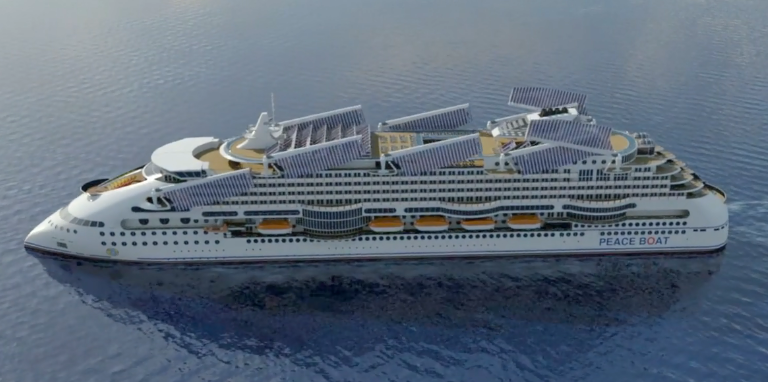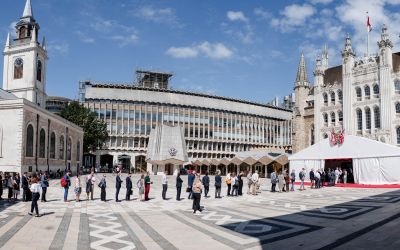The future of cruise ships- Peace Boat Ecoship
In the last years, the cruise industry has gone from strength to strength.

In the last years, the cruise industry has gone from strength to strength. The increasing number of these massive ships has an enormous environmental impact. As a result, marine architects and ship designers around the world are rethinking the real-world possibilities of powering these vessels with renewable energy. Peace Boat is leading by example with the construction of Ecoship, the world’s most sustainable cruise ship
Ecoship will be a flagship for the United Nations Sustainable Development Goals (SDGs) and climate action. It is a transformative solution to reduce greenhouse emissions, protect the oceans, promote higher engagement and trigger creative actions through sustainable tourism and education. It will sail four times around the world yearly, visiting communities on the front line of climate change and ocean degradation, and provide a platform for partnership between civil society, the scientific community, the private sector and governments, including cities and regions. The ship will lead the way in sustainable maritime transport, mitigating climate-change related impacts on the ocean, including ocean acidification, through a 40% CO2 reduction and a zero-emission target in ports. This will be achieved through a combination of energy efficiency in propulsion and accommodation and maximizing the use of renewable energies through its solar and wind power installations. It will serve as a floating sustainability laboratory contributing to research on the climate, ocean and green technology.
Ecoship will contribute to climate action as a platform for Peace Boat’s global voyages, through programmes and activities onboard and in ports. One example is the Ocean and Climate Youth Ambassadors Programme, launched at the UN Ocean Conference in 2017. The programme brings young leaders from small island states on the front line of climate change and ocean degradation to take part in capacity training on board and to engage with local stakeholders in ports they visit to share the impact of climate change on their countries. The programme has had participants from Fiji, Marshall Islands, Palau and Kiribati in the Pacific Ocean; Seychelles, Maldives and Mauritius in the Indian Ocean; and Belize, Trinidad & Tobago and Barbados in the Caribbean. The programme was an endorsed event of the COP23 Presidency and the Talanoa Dialogue. The third edition of the Ocean and Climate Youth Ambassador programme, launched at COP24, will take place May 24– June 8, 2018 onboard Peace Boat’s 101st Global Voyage, from Valletta (Malta) to New York (United States) with stops and activities in Motril (Spain), Tangier (Morocco) and Ponta Delgada (Portugal).
Ecoship is the result of cross-sector multi-stakeholder partnerships. The key partners are Peace Boat, an NGO with Consultative Status with UN ECOSOC, in partnership with the UN SDG Action Campaign and affiliated with the UNDPI; and Japan Grace, the travel agency which coordinates Peace Boat’s current global and regional voyages through a social business model.
A global group of distinguished experts from fields including climate action, sustainability and renewable energy are providing advice to the Ecoship as official supporters, including Dr. Sylvia Earle, National Geographic Explorer in Residence and Founder of Mission Blue, Ms. Christiana Figueres, UNFCCC Executive during the Paris Agreement and Mission 2020 Convenor and Dr. Amory Lovins, co-founder and Chief Scientist, Rocky Mountain Institute.






